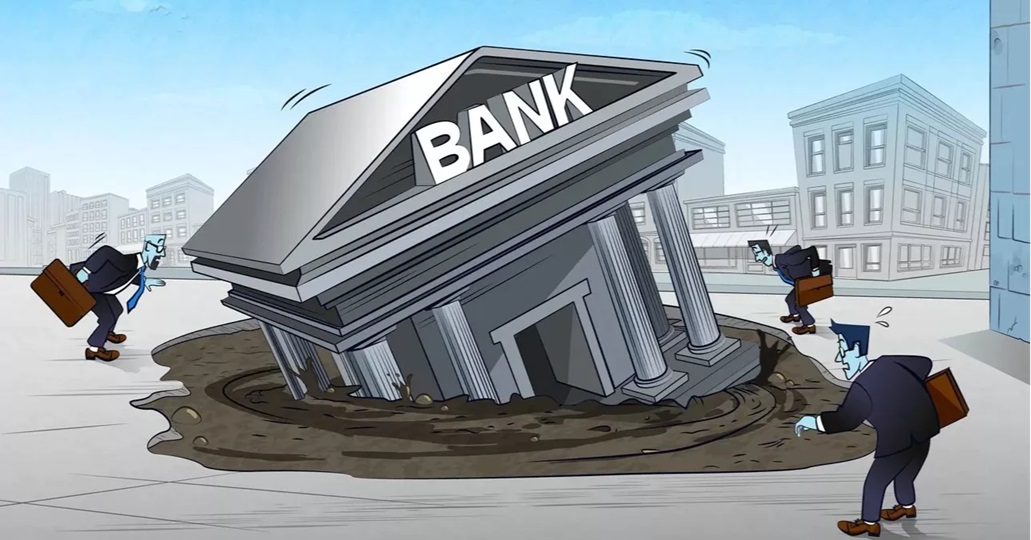Bangladesh’s banking crisis deepens; audit uncovers Tk 1.55 lakh crore shortfall


Bangladesh’s banking sector is struggling with a deepening crisis, as the latest independent audit for the June quarter exposes a collective capital shortfall exceeding Tk 1.55 lakh crore.
Experts warn that restoring stability and achieving a standardised balance will require significant time and concerted effort.
This alarming deficit highlights a growing systemic crisis driven by a dramatic surge in non-performing loans (NPLs) across the industry.
According to data from the Bangladesh Bank (BB), 24 of the country's 61 scheduled banks have failed to maintain the legally required minimum capital.
The list of non-compliant institutions includes four state-owned commercial banks, two specialised banks, and a staggering 18 private commercial banks.
Economists are raising serious concerns, stating that the situation poses a significant threat not only to the stability of the individual banks involved but also to the overall resilience of the nation's financial sector.
Mamun Rashid, an economic analyst, said that the stability of the banking sector will bring stability to the greater financial sector of Bangladesh. So, it is essential to emphasize the banking sector.
But this is a difficult job as over two dozen banks are struggling with over-loaded, defaulted loans. The banks required long-term planning with a stable political situation, he pointed out.
He predicted that a stable political situation would create a flood of foreign investment in Bangladesh, which would bring stability in the banking sector as well as the financial sector.
The combined capital shortfall for the 24 distressed banks stood at Tk 1,55,866 crore as of the end of June. This figure marks a sharp escalation from the previous quarter, where the shortfall among 23 banks was Tk 1,10,260 crore in March.
The primary cause of this capital depletion is the overwhelming pressure from bad loans. As the volume of NPLs increases, banks are required to hold larger security provisions (loan-loss provisions). When they fail to maintain these necessary provisions, their capital base is directly eroded.
Mahbubur Rahman, CEO of Mutual Trust Bank, told UNB that a significant portion of the NPL surge is due to past irregularities and alleged large-scale loan corruption under the previous government.
Following the recent change in the political landscape, banks are now beginning to report these previously hidden or 'evergreened' debts as genuine defaults, leading to a record increase in NPL figures over the last few quarters, he said.
This surge in NPLs has, in turn, escalated the size of banks' risk-weighted assets, further increasing the requirement for capital, said Mahbub.
Under the Basel-III framework, Bangladesh Bank mandates that scheduled banks must maintain a Minimum Capital Requirement (MCR) plus a Capital Conservation Buffer (CCB) equivalent to 12.5 percent of their total Risk-Weighted Assets (RWA).
Besides, banks have been directed since 2015 to maintain a minimum 3 percent Leverage Ratio (LR), which is slated to be gradually increased to 4 percent by 2026.
The 24 banks on the shortfall list have demonstrably failed to meet these essential regulatory standards. The financial consequences for non-compliant banks are severe, including restrictions on paying dividends to shareholders and facing difficulties in conducting transactions with international banks, which view low capital adequacy as a major credit risk.
The capital crisis has hit the state and private sectors with severity
The two specialized banks are the worst hit. Bangladesh Krishi Bank recorded the highest overall capital shortfall at Tk 29,161 crore as of June. Rajshahi Krishi Unnayan Bank followed with a deficit of Tk 2,620 crore.
Among the state-owned commercial banks, the highest deficits were reported by:
· Janata Bank: Tk 17,025 crore
· Agrani Bank: Tk 7,698 crore
· Rupali Bank: Tk 4,173 crore
· Basic Bank: Tk 3,783 crore
Private Commercial Banks:
Eighteen private banks are now on the capital deficit list, with several highly exposed. New additions to the list for the June quarter include NRBC Bank and Al-Arafah Islami Bank.
The worst-hit private banks (excluding Shariah-based):
· National Bank: Tk 8,459 crore
· AB Bank: Tk 6,775 crore
· Padma Bank: Tk 5,619 crore
· IFIC Bank: Tk 4,051 crore
· Shariah-Based Banks:
The Islamic banking sector, which has been the subject of recent merger plans, also contributes significantly to the shortfall:
· Union Bank: Tk 21,387 crore
· Islami Bank Bangladesh: Tk 18,504 crore
· First Security Islami Bank: Tk 10,501 crore
· Global Islami Bank: Tk 5,552 crore
· Social Islami Bank: Tk 2,079 crore
Professor Shohidul Islam, Chairman, Department of Banking and Insurance, Dhaka University, told UNB that the alarming rise in capital shortfalls confirms that the financial sector's core problems—poor governance and lax lending practices—have come to a head, forcing the regulatory body to confront a crisis of confidence that may require extensive government intervention to resolve.
He said some banks require a long time, 20 years to 30 years, to make a standard balance sheet in the defaulted loan and deposit ratio, as the loan scam in the banking sector has never happened in the world ever.
